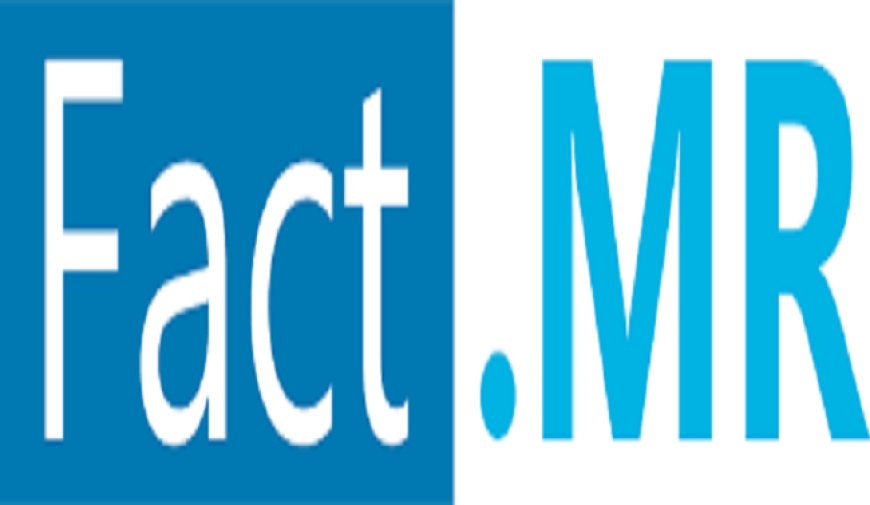Corrosion-Resistant Steel Tubes Gain Traction in Construction Sector
The global steel tubes market is expected to grow from a valuation of US$ 93.3 billion in 2022 to US$ 114.8 billion by the end of 2032, expanding at a compound annual growth rate (CAGR) of 2.1%.

The global steel tubes market is expected to grow from a valuation of US$ 93.3 billion in 2022 to US$ 114.8 billion by the end of 2032, expanding at a compound annual growth rate (CAGR) of 2.1%.
The steel tubes market is a crucial segment within the global steel industry, offering versatile solutions for various applications across construction, automotive, energy, and industrial sectors. Steel tubes, made from high-quality steel, are widely used for transporting fluids, gases, and other materials, as well as structural applications in buildings, bridges, and other infrastructure. The market is primarily driven by the growth of industries requiring durable, reliable, and cost-effective piping and tubing solutions. Steel tubes are appreciated for their strength, flexibility, and resistance to wear and corrosion, making them ideal for use in demanding environments.
The global steel tubes market is vast and diverse, encompassing several product types, such as seamless and welded steel tubes. Seamless tubes, which are produced without joints, are commonly used in high-pressure applications like in the oil and gas industry, while welded tubes find their place in structural and general piping applications. The demand for steel tubes is expected to continue expanding as industries grow and require more efficient ways to transport materials or build stronger structures.
Want Full Report? Enquire Here-https://www.factmr.com/report/480/steel-tubes-market
Market Insights
The steel tubes market is segmented by type, application, and region. Based on type, the market includes seamless and welded tubes. Seamless steel tubes are highly valued for their ability to withstand high-pressure environments, such as those found in the oil and gas industry, power generation, and chemical processing. Welded steel tubes, on the other hand, are used in more general applications, including construction, automotive, and water transport systems.
By application, the market covers a wide range of sectors. The construction industry remains one of the largest consumers of steel tubes, where they are used for structural support in buildings and infrastructure. The automotive sector also relies on steel tubes for exhaust systems, fuel lines, and chassis components. Additionally, the energy sector, particularly oil and gas exploration, continues to drive demand for steel tubes for pipelines and drilling operations. The versatility and durability of steel tubes make them indispensable in many sectors, allowing for a steady increase in demand.
Market Outlook
The outlook for the steel tubes market is positive, driven by the continued expansion of construction, automotive, energy, and industrial applications. Urbanization and infrastructure development are key drivers, with increasing investments in residential, commercial, and industrial buildings. As global demand for energy continues to rise, the need for steel tubes for pipelines and drilling equipment remains strong, particularly in emerging markets where energy consumption is growing rapidly.
Technological advancements are also expected to fuel the growth of the steel tubes market. Innovations in manufacturing techniques, such as improved welding processes and the development of advanced steel alloys, are enhancing the performance and durability of steel tubes. Additionally, the growing emphasis on sustainability and environmental impact is leading to increased use of high-strength, lightweight steel tubes, which are more efficient in terms of material usage and energy consumption during production.
List of Key Companies Profiled in The Report
- NSSMC
- Nucor Corporation
- Arcelor Mittal
- Jindal SAW Ltd.
- POSCO
- Tata Steel
- Others
Recent Industry News
Recent news in the steel tubes market highlights several key developments, including mergers and acquisitions among leading manufacturers, the launch of innovative steel tube products, and strategic partnerships aimed at expanding production capacity. These activities demonstrate the industry's commitment to meeting growing demand and offering advanced solutions to customers in diverse sectors.
Steel tube manufacturers are also focusing on enhancing production efficiency and reducing costs through automation and digitalization. New manufacturing technologies, such as advanced welding techniques and 3D printing, are being employed to increase precision and minimize waste, further driving the growth of the market.
Steel Tubes Market Notable Developments
Notable developments in the steel tubes market include increased investments in automation and robotics to enhance production capabilities and meet the rising demand for high-quality tubes. Leading manufacturers are also prioritizing sustainability by adopting green production practices, such as using recycled steel and reducing energy consumption during the manufacturing process.
In addition, advancements in the use of high-strength steel alloys are opening up new opportunities in the automotive, construction, and energy sectors, as these materials provide greater durability and corrosion resistance. These innovations are expected to drive the market's expansion, as industries increasingly seek materials that offer superior performance in harsh environments.
Competitive Landscape
Steel tube manufacturers are increasingly adopting advanced processes to enhance the performance characteristics of their products, focusing on preventing oxidation and rusting.
Many players are concentrating on addressing the specific needs of their customers. With a strong focus on innovation, the market benefits from robust partnerships throughout the value chain. Manufacturers are also working to strategically collaborate with end users and local distributors to cater to the growing consumer demand.
For example, ArcelorMittal, a Luxembourg-based steel company, acquired Ilva S.p.A. (an Italian steel company) to strengthen its asset portfolio and expand its presence in the European steel tubes market.












